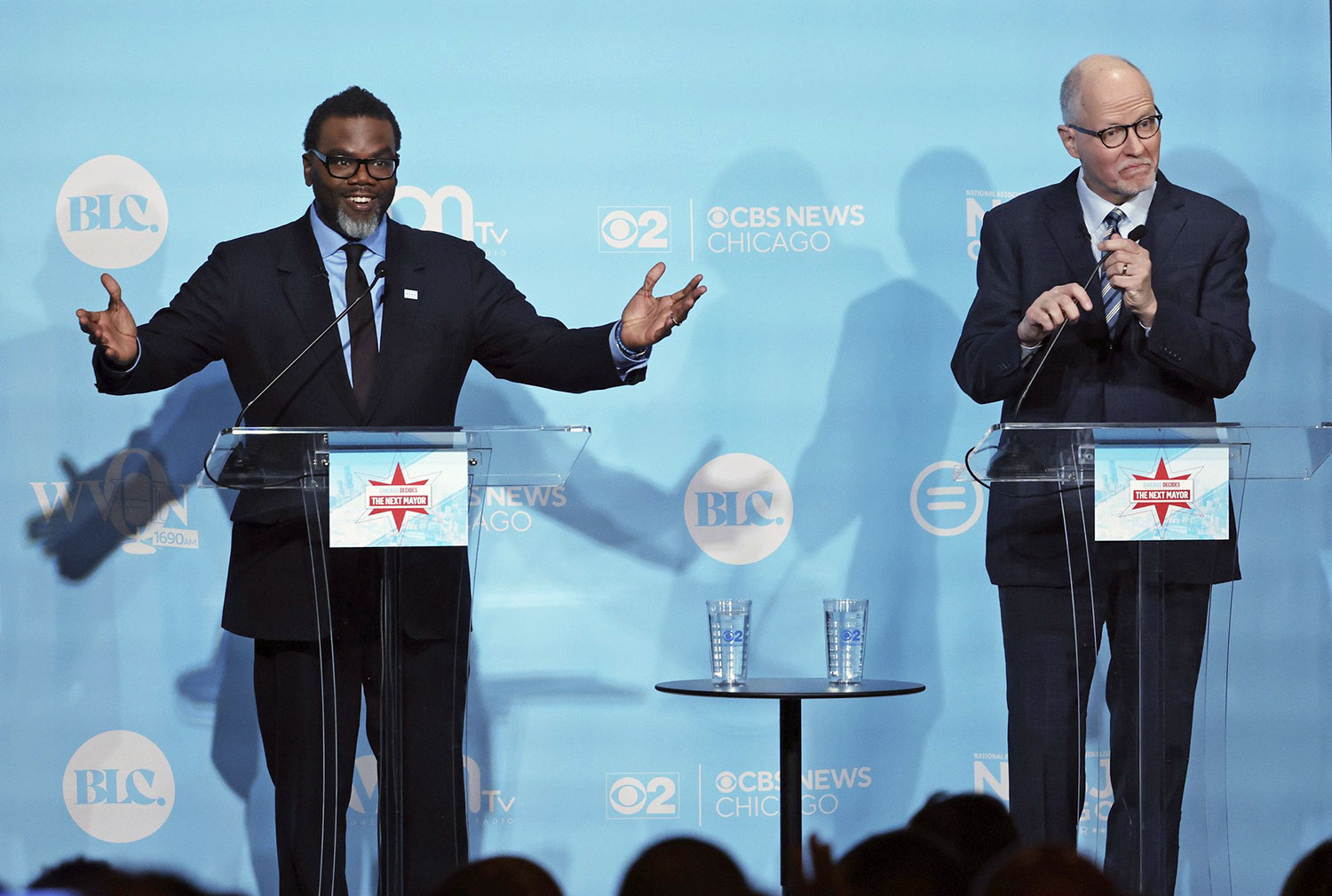Last week, I talked to a writer from New York magazine about the mayor’s race. Chicagoans are used to New Yorkers not thinking about us at all, except to read articles about pizza or watch a TV show about an Italian beef stand, so I asked him why anyone in New York cared who would be our next mayor.
“It’s a big city,” he said; “it’s an important race. It’s certainly two candidates who are different from each other. Chicago can go in different directions, depending on who wins.”
And as goes Chicago, so goes the nation — or at least the Democratic Party. Chicago has been called “the most American of American cities.” The contest between Paul Vallas and Brandon Johnson is seen as a bellwether that will determine the direction of the Democrats in future elections. As The New York Times wrote, “It has…highlighted the Democrats’ divide between a liberal left that coined the phrase ‘defund the police’ and a resurgent center insisting the party does ‘back the blue.’”
It’s an odd-numbered off year, and the first Republican presidential debate won’t take place until August — so national pencils are filling their columns with Chicago stories.
According to some big thinkers, our election has already inspired more law-and-order posturing among Democrats. The voters threw out Lori Lightfoot because she couldn’t get a handle on crime. Wrote conservative columnist Mona Charen, “just days after Lightfoot’s toppling, [President] Biden announced that he would not veto congressional action to nullify the District of Columbia’s proposed criminal code changes,” which included lowering penalties for carjacking. New York Mayor Eric Adams, who got elected by posturing for law and order, called his Chicago counterpart’s defeat “a warning sign.” Then he accused shoppers wearing masks of trying to avoid anti-shoplifting facial recognition technology, not COVID.
The Hill, a D.C. water-cooler sheet, predicted that “[w]hoever wins the race could offer clues about which approach on crime and public safety is most resonating with voters — an issue that Republicans are already making a key part of their platform heading into 2024.”
Even at City Hall, they’re seeing the national implications. Ald. Raymond Lopez, who has endorsed Vallas, believes Johnson’s election will result in “an even further left shift in the Democratic Party,” making it more difficult to compete with Republicans for moderate voters. “We will officially become the party of coddling criminals. Unless you are far left, a socialist or a communist, you won’t be welcome in the Democratic Party.”
Ald. Carlos Ramirez-Rosa, who represents the city’s most pro-Johnson ward, also sees the mayor’s race as a battle for the soul of the Democratic Party. Electing Johnson, he says, will “show the right it’s not making advances in major American cities.” If Vallas wins, “Fox News will say that big cities are turning away from the failed policies of the Democrats.”
Ald. Tom Tunney sees an “ideological rift” between the two candidates, but his concern is that Johnson’s election would embolden teachers unions around the country to ramp up their political activism. Johnson is a former organizer with the Chicago Teachers Union, which has contributed more than $1 million to his campaign. The American Federation of Teachers’ PAC gave Johnson $500,000.
“The amount of teacher union support nationwide” is remarkable, Tunney said. “These people are beholden to the unions.”
(The Wall Street Journal agreed, writing in an editorial, “If Mr. Johnson wins, government unions will continue to run the city, and the teachers union will run the schools to the detriment of students and the city’s future.”)
Another reason the race is getting national attention, says Ald. Maria Hadden, is that issues once decided at the federal level have been pushed down to the state and local level. Ever since the Supreme Court overturned Roe v. Wade, Hadden has been approached by college students wanting to talk about abortion — not the traditional purview of the city council.
“I think it’s just what we’re seeing on the national scale, this constant onslaught,” Hadden said.
That’s not the only reason, though. Chicago has provided the nation with some of its most memorable political characters, from Big Bill Thompson to Barack Obama, so our elections always make good copy. Once every four years, at least, we’re known for something more than pizza.
“Chicago is the Hollywood of politics,” Hadden said. “Whenever we have high-profile races, all the parties pay attention.”



